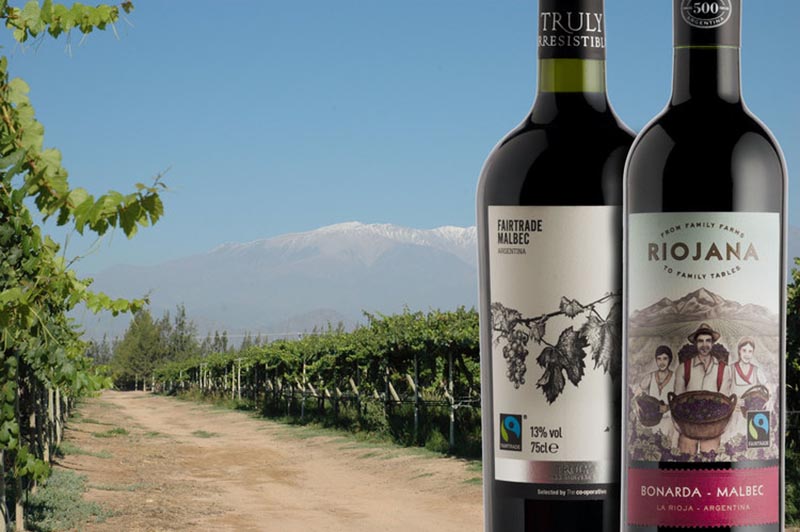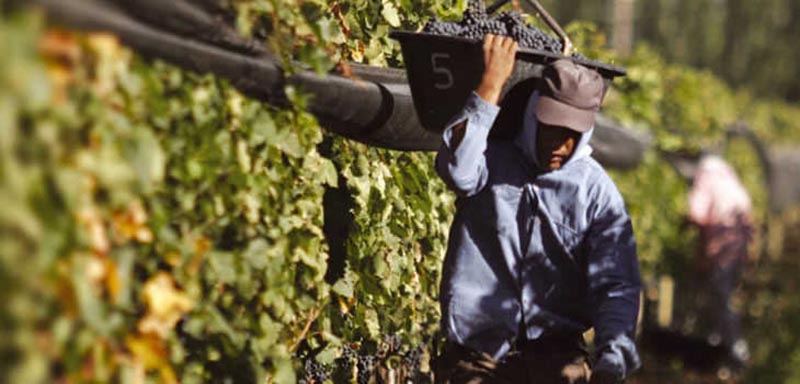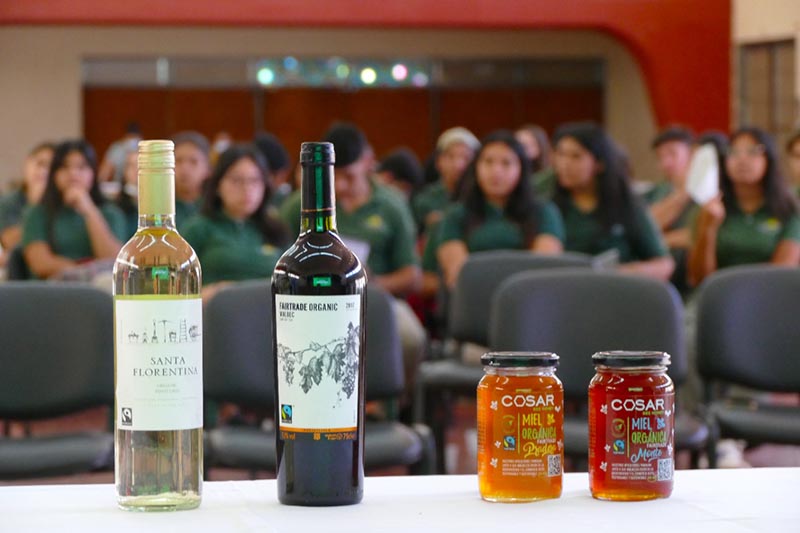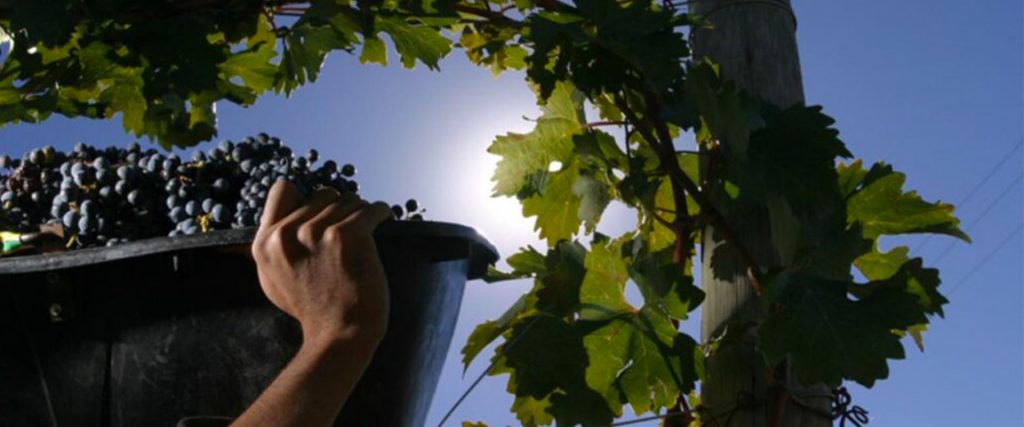Fair trade is defined as an international trading system based on equality and respect that supports the development of small producers. It encourages responsible management of natural resources and facilitates direct access to the market under equal conditions creating sustainable, supportive and quality channels for sales.
It is also the name of a network of international organizations that provides certification for products that meet these standards.
Not many know that Argentine Fairtrade wine was the first product to be sold with the certification in the country: 4000 hectares in Mendoza and La Rioja are under vine with the certification belonging to different producers and wineries such as Argento, Finca la Celia, La Riojana Cooperativa, Montlaiz, Alta Vista, El Esteco and Marañón.

Argentine Fairtrade wine, a seal of distinction
“In the local market, you can find the wine Finca Monteflores, from Alta Vista, with the Fairtrade label. In the export market, there are a range of labels: Artesano from Argento; Raza Argentina from La Riojana; and Don David from El Esteco, among others. In addition, Argentine Fairtrade wines also appear as exclusive own brand labels at supermarkets such as The Coop in the United Kingdom, which sells wines from La Riojana,” says Mariano Salerno, a coordinator at CLAC/Fairtrade in Argentina and Uruguay.
“As workers, we benefit from membership in a Fairtrade-certified organization, especially the premium on the sales of products that we make ourselves. That premium then has a beneficial knock-on effect. As President of the Civil Association of Workers that decides how that premium is used, I concentrate on developing projects that benefit my colleagues and the community,” says Andrea Ponce, a line worker in Bodega Argento’s packaging department.
The external market for Argentine Fairtrade wine
The United Kingdom is the leading buyer of these wines. “It’s followed by Scandinavian countries such as Sweden and Finland, then to a lesser degree come Canada and the United States but they have great potential,” says Salerno.
Right now, around 350 producers and 1200 workers in the Argentine wine industry benefit from these sales. The annual amount of premium income received is about 500 thousand dollars, depending on total sales each year.
“0.05 euros per kilo of grapes is paid for each Fairtrade sale. At the cooperatives, these funds benefit members, who are all small producers and the use they are put to is decided democratically. At the companies, the decision is made by the workers. Generally, the money is invested in projects that benefit families,” says Salerno.

Looking to the future
Growing the Fairtrade concept in the internal market is one of the most pressing challenges, alongside getting more brands and companies involved. “It hasn’t yet reached the south of the country, and to the north, in the Calchaqui Valley and Cafayate, El Esteco is the only winery so far. Spreading the word about the impact of Fair Trade is very important. For example, in Tilimuqui, La Rioja, the Fairtrade premium has financed the construction of an agricultural and technical school and a health center is expected to open by the end of the year,” says Salerno.
Two Case Studies
Bárbara Wolff, Manager of Corporate Affairs and Sustainability at VSPT Wine Group, shares her experience at Bodega La Celia: “The Fairtrade certification process has allowed us to expand our organizational program, which is focused on providing care and facilitating the development of our people. In general terms, it has allowed us to enhance our positive impact on the community, supporting the implementation of detailed, long-term development plans. We’ve been working with Fairtrade for over a decade.
“Fairtrade is a good tool for generating shared value with those around us as well as getting consumers involved. The certification has also allowed us to answer demand for socially responsible products. It has spurred us to improve our working practices as it presented challenges with regard to the use of pesticides. We’re more committed and aware of the importance of working together to protect people’s health and safety throughout the supply chain.”

Pablo Francisco, the CEO and President of Alta Vista, says that Fairtrade certification has allowed the winery to increase its sales with new distribution channels and customers and to guide cultural practices in the vineyard toward sustainability. Internally, it has empowered workers as the premium they receive for sales finances projects that benefit the community in general.
“Among other projects, we have implemented a nutritional plan for 46 families, and special medication has been supplied along with scholarships and training courses while a First Aid clinic was built and a school dining hall was refurbished.
“Fair Trade was already a part of our vision for the company, but in 2011 we signed up to the criteria for trade and received certification as a grape producer and maker and exporter of wines. We were the first high-end Argentine winery to receive comprehensive certification throughout the supply chain under the Fairtrade brand.”
There are plenty of opportunities for further expansion of Argentine Fairtrade wine certification. the challenge is great and gratifying as it consolidates sustainable production, benefits for the community, empowerment of workers and also generates new sales channels.


